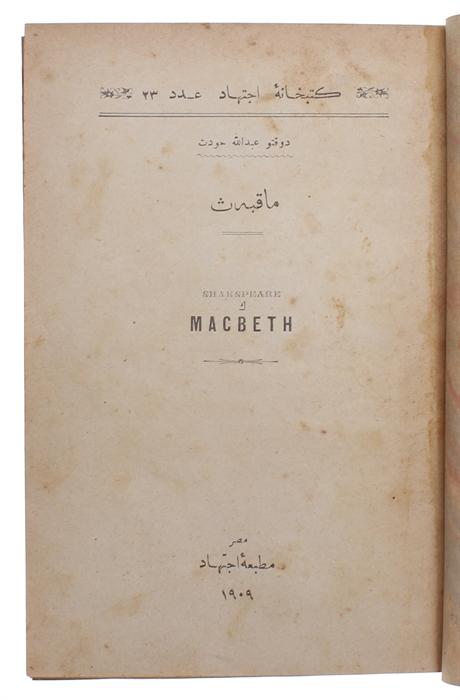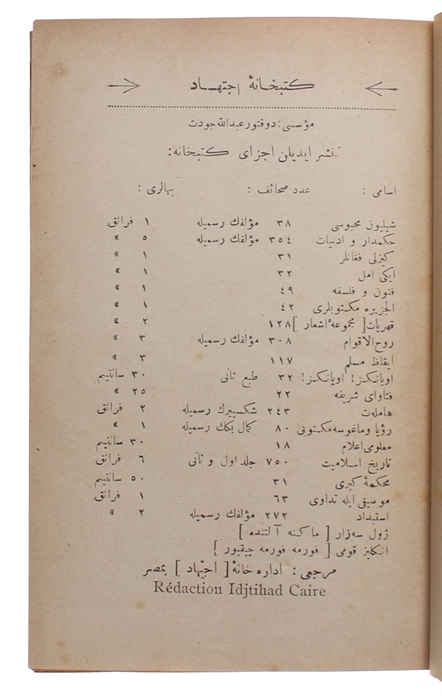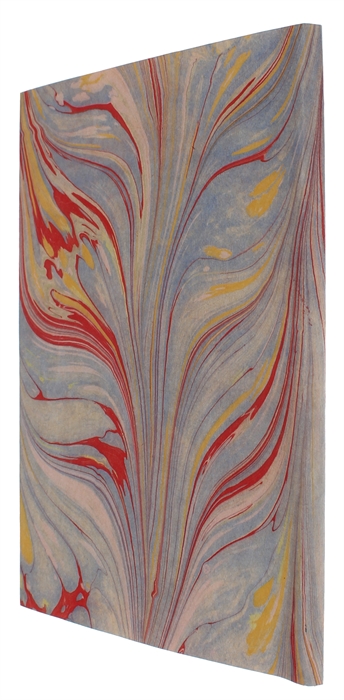FIRST TURKISH TRANSLATION OF MACBETH
SHAKESPEARE, WILLIAM (+) ABDULLAH CEVDET (translator).
Makbath (i.e. "Macbeth").
Egypt (Cairo, but possibly Istanbul), Kütübhane-i Içtihad, 1909.
8vo. In later marbled wrappers. Light browning to title-page and a few occassional brownspots throughout, otherwise a good copy. In Ottoman script (Old Turkish with Arabic letters). 159 pp.
Rare first Turkish translation of Macbeth, printed in Ottoman Cairo. Between 1908 and 1910, Abdullah Cevdet produced a large oeuvre of translations, including four translations of Shakespeare's tragedies: Macbeth, Hamlet, Julius Caesar, and Romeo and Juliet to Ottoman Turkish. "A Certain Abdullah Cevdet, a doctor of medicine, a polemist, a printer, was also known as a Shakespeare idolator as he always found a way of mentioning Shakespeare in all his talks and in all his writings. Abdullah Cevdet translated and published in his own printing house first in Cairo and then in Istanbul five of Shakespeare's play, beginning with Hamlet in 1908 and ending the series with Anthony and Cleopatra in 1921" (Turhan, Vahit. Shakespeare in Turkish). Although Macbeth was published the year after The Second Constitutional Era Abdülhamid II seemed to be even less tolerant of the dissemination of Macbeth, Hamlet, and Julius Caesar, all being about unjust rulers who were executed. The performances of these plays were subject to strict censorship in Ottoman dominated countries and they were banned from most of them. (Paker 1986: 91), which is most likely the reason for why Abdullah Cevdet was able to publish the translations of these plays only after 1908, though he presumably had finished translating possibly as early as 1902. Cevdet’s translation was introduced to the Turkish audience at a time when the discourse of westernization was prevalent. The translation coincided with the announcement of a Constitutional Revolution that led to the dethronement of Abdülhamit II and ultimately to the promotion of western-inspired reforms. Since Cevdet was one of the ardent supporters of an Ottoman Renaissance through westernization, his translation has been framed as a symbol of the western canon within the Turkish context. For instance, Demirkol regards Cevdet’s translation as an object of culture-planning which was sought to promote westernization. " (Durmus, Discourses on Hamlet’s Journey in Turkey).
Order-nr.: 60381



